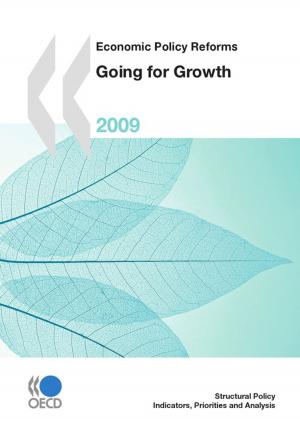OECD Business and Finance Outlook 2016
Business & Finance, Finance & Investing, Investments & Securities| Author: | Collectif | ISBN: | 9789264257580 |
| Publisher: | OECD | Publication: | June 9, 2016 |
| Imprint: | OECD | Language: | English |
| Author: | Collectif |
| ISBN: | 9789264257580 |
| Publisher: | OECD |
| Publication: | June 9, 2016 |
| Imprint: | OECD |
| Language: | English |
It is seven years since the global crisis and despite easy monetary policy, financial regulatory reform, and G20 resolutions favouring structural measures, the world economy is not making a lot of progress. Indeed, the responses to the crisis seem mainly to have stopped the banks from failing and then pushed the many faces of the crisis around between regions—currently taking the form of excess capacity in emerging markets. Productivity growth raises income per head, allows companies to pay better wages and it raises demand to help to eliminate excess capacity and improve employment. However, this element is missing in the global corporate sector. The theme of this year’s Business and Finance Outlook is fragmentation: the inconsistent structures, policies, rules, laws and industry practices that appear to be blocking business efficiency and productivity growth.
It is seven years since the global crisis and despite easy monetary policy, financial regulatory reform, and G20 resolutions favouring structural measures, the world economy is not making a lot of progress. Indeed, the responses to the crisis seem mainly to have stopped the banks from failing and then pushed the many faces of the crisis around between regions—currently taking the form of excess capacity in emerging markets. Productivity growth raises income per head, allows companies to pay better wages and it raises demand to help to eliminate excess capacity and improve employment. However, this element is missing in the global corporate sector. The theme of this year’s Business and Finance Outlook is fragmentation: the inconsistent structures, policies, rules, laws and industry practices that appear to be blocking business efficiency and productivity growth.















